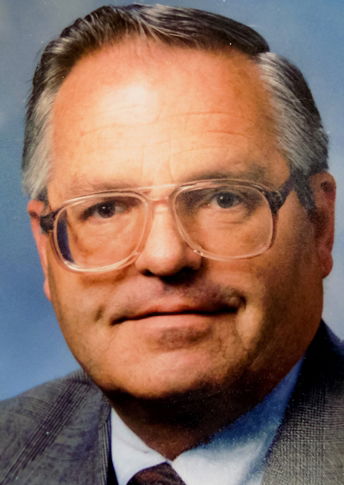Effective Design Control (21 CFR Part 820.30)
Learn More
John E. Lincoln, is Principal of J. E. Lincoln and Associates LLC, a consulting company with over 36 years experience in U.S. FDA-regulated industries, 22 of which are as an independent consultant. John has worked with companies from start-up to Fortune 100, in the U.S., Mexico, Canada, France, Germany, Sweden, China and Taiwan. He specializes in quality assurance, regulatory affairs, QMS problem remediation and FDA responses, new / changed product 510(k)s, process / product / equipment QMS and software validations, ISO 14971 product risk management files / reports, Design Control / Design History Files, Technical Files, CAPA systems and analysis.
He’s held positions in Manufacturing Engineering, QA, QAE, Regulatory Affairs, to the level of Director and VP (R&D). In addition, John has prior experience in military, government, electronics, and aerospace. He has published numerous articles in peer reviewed journals, conducted workshops and webinars worldwide on CAPA, 510(k)s, risk analysis / management, FDA / GMP audits, validation, root cause analysis, and others. He writes a recurring column for the Journal of Validation Technology. John is a graduate of UCLA.
The FDA expects companies to perform meaningful, results driven Design Control activities as defined in in 21 CR 820.30, for both new and changed devices. ISO 13485:2016 now requires the same 10 elements under 7.3 Design and Development Planning. The company is held fully responsible for deciding when to start and the specific documentation to meet the 10 requirements. Beyond compliance, these 10 elements can be a powerful tool in reducing “time to market” / “fast cycle” product development.
In addition, growing high-profile field problems indicate that design control and it’s effect on regulatory review activities are not yet fully utilizing the power of current risk management tools, which must be a part of the design control process — the ISO 14971 “model”. A growing push by the Agency to strengthen the 510(k) process, and review existing devices with above normal adverse events are additional concerns, to be factored into the design control process.
The resulting documentation can have other far-reaching uses in a company. Proper design control requires a defined “start” date, and the systematic / SOP-defined implementation of formal methods with documented, and defensible, rationale. When properly executed, it is a powerful product development project management tool.
Areas Covered in the Session :
- Current Design Control Requirements
- Defining the “Start” Date and Its Significance
- The 10 Design Control Elements
- Implementation and Documentation
- The Design History File (DHF)
- Their Implementation and Documentation
- Their Implementation and Documentation
- The Business Case for Design Control
Who Should Attend:
- Senior Management
- Middle Management
- Quality Assurance Departments
- Regulatory Affairs Departments
- R&D Departments
- Operations Departments
- Production Departments
- Manufacturing Departments
- Engineering Departments
- Marketing Departments
- Medical Device Consultants
Course Director: JOHN E. LINCOLN
 | Meena Chettiar currently works as a Quality and regulatory Manager at ProMed Pharma in Minneapolis. Meena has worked as a Senior Supplier quality engineer at Covidien, Senior Quality Associate (Lead Auditor and CAPA Coordinator) at Baxter Bio Surgery in St. Paul, MN. Meena worked as a Senior Quality Control Manager at Teva Pharmaceuticals for over 10 years and as Instrumentation lab supervisor at Land O’ Lakes. Meena has also worked for Agriculture and Health Canada in several technical capacities for about 10 years before immigrating to the United States. Meena made the transition to the medical device industry after completing a MS in Regulatory Affairs for Medical Devices through St. Cloud State University in 2010. Meena has played a key role in quality system implementations in the food, pharma, and medical device industries. Meena has participated as the lead supplier/internal/GMP auditor in several Compliance audits in the US and abroad. She has a strong auditing background in the pharmaceutical and medical device auditing. Meena is a senior member of ASQ (American Society for Quality) and is ASQ certified CQA (Certified Quality Auditor), CBA (Certified Biomedical Auditor), CQIA (Certified Quality Improvement Associate), and CMQ/OE (Certified Manager of Quality/Organizational Excellence). She has been serving as an instructor for these ASQ certification classes since 2006 and has conducted quality and medical device related training classes in her current position at Baxter. Meena is a coauthor of the CBA (Certified Biomedical Auditor) primer for the Quality Council of Indiana. She is currently an adjunct instructor for the medical technology quality program at St. Cloud State University in Minnesota. Ms. Chettiar received her M.S Regulatory Affairs and Services for Medical Devices from St. Cloud State, Minnesota, M.S. in Chemical engineering from University of British Columbia and her B.S. and M.S in Applied Chemistry from the University of Madras, India. Meena is happy to teach webinars for the Compliance Trainings and continue to contribute towards quality and regulatory compliance. |